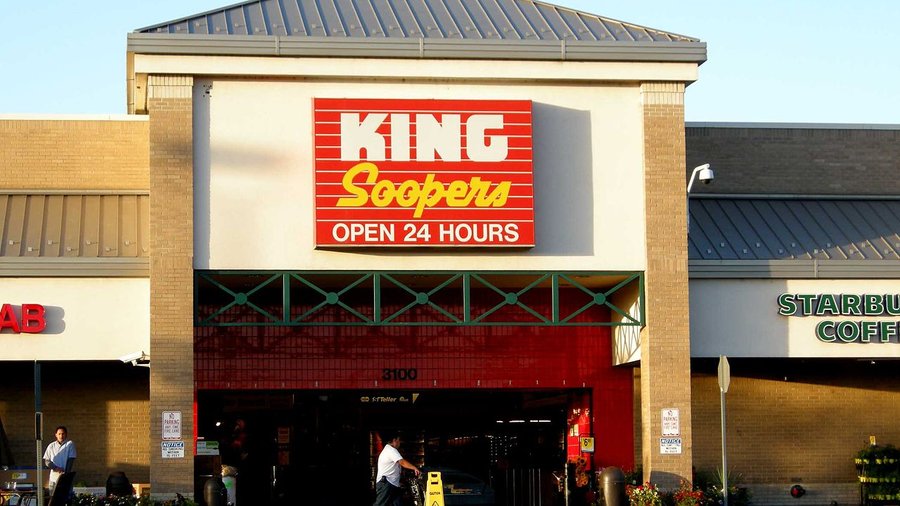Listen to this article 4 min
Colorado Attorney General Phil Weiser has filed a lawsuit to stop a proposed merger between Kroger and Albertsons, citing antitrust laws.
The attorney general said late Wednesday morning that the proposed $24.6 billion deal would end competition for grocery store consumers in many parts of the state and that a proposal from Kroger to ease antitrust concerns isn't enough.
"The worst thing in Colorado is for this merger to happen," Weiser told reporters at a news conference announcing the lawsuit.
The suit, filed in Denver District Court, asks the court to permanently block the merger and seeks $1 million in civil penalties for a violation of state antitrust laws that Weiser said his team discovered during an investigation of the proposal.
Weiser is the second attorney general in the U.S. who has sued to stop the deal from happening. Washington state's attorney general filed a similar lawsuit in January.
Cincinnati-based Kroger (NYSE: KR) and Boise, Idaho-based Albertsons (NYSE: ACI) are respectively the largest and second-largest operators of traditional supermarkets in the nation. Kroger operates Fred Meyer and QFC stores in the Pacific Northwest, while Albertsons owns the Safeway chain.
Kroger’s acquisition of Albertsons would combine Albertsons stores in 34 states and the District of Columbia with more than 2,700 Kroger stores in 35 states and the District of Columbia.
In Colorado, the businesses are the first and third-largest grocery sellers, respectively, with nearly 45% of the state's combined market share, according to reports. Kroger is the company behind King Soopers and City Market stores, while Albertsons owns Safeway grocery stores.
According to the attorney general's office, Kroger operates 148 stores and Albertsons operates 105 stores in Colorado.
Weiser said Wednesday that the proposal, which the companies agreed to on Oct. 14, would give Kroger significant market power in both urban and rural areas of the state. That would allow the company to set its price for consumer products, he said — particularly in towns like Gunnison, which counts City Market and Safeway as its only supermarket stores.
"If you're in Gunnison, you'd have to drive all the way to Salida or Montrose to reach a non-Kroger store, leaving consumers at the peril of a single supply chain," Weiser said.
He said the companies' actions during the King Soopers employee strike in January 2022 are further evidence that Kroger and Albertsons are competitive. During the strike, he said consumers "overwhelmingly" shifted their shopping to Safeway.
Weiser said emails obtained by his office in the deal investigation also show that company executives had agreed to no-poach and non-solicitation agreements during the strike. Safeway agreed to not hire any King Soopers employees and not to solicit King Soopers’ pharmacy customers, investigators say.
"It is what you might call textbook definition — these two companies are the most significant direct competitors of one another," Weiser said. "It's worth noting, there's no other company that Kroger was worried about losing its workers to, or its pharmacy customers to. They were worried about Albertsons. That's why we're worried about this merger."
Kroger and Albertsons leaders said in a joint statement that they were disappointed in Weiser's "premature" decision to file a lawsuit while the merger was still under regulatory review and in a continuing dialogue with the Federal Trade Commission.
"The merging parties will vigorously defend this in court because we care deeply about our customers and the communities we serve, and this merger will result in the best outcomes for Colorado consumers," the statement said.
The companies argued that blocking the merger would strengthen larger, non-unionized retailers such as Walmart, Costco and Amazon as examples.
"In contrast, Kroger and Albertsons Companies merging will bring lower prices to more customers, strengthen and create good-paying union jobs, and bring more fresh, affordable food to more communities," the statement said.
In September, Kroger and Albertsons said they would sell 413 stores to Keene, N.H.-based C&S Wholesale Grocers in the hopes of appeasing federal antitrust regulators. That deal includes 52 Albertsons stores in Colorado that would be sold rather than be absorbed by Kroger.
Weiser's lawsuit argues that the deal still wouldn't allow for a truly competitive market in Colorado.
Those 52 C&S stores would not be enough to effectively compete with Kroger in the way that the Albertsons brand currently does, he said. Weiser also said the agreement between the companies would make C&S reliant on Kroger for things like pricing, pharmacy and IT infrastructure for up to two years, and argued that C&S does not have enough retail grocery experience to take on so many stores.
Weiser harkened back to the merger between Albertsons and Safeway in 2015, saying that deal produced "real harms" for Colorado communities.
"The fact that Kroger at this merger could be 50% of the supermarket share in Colorado is a very clear flashing red light," he said. "I gave them a full chance to make their case as to how this merger could help consumers, help workers, help our communities, and I was utterly not convinced."
This story has been updated to include a response from company officials.
